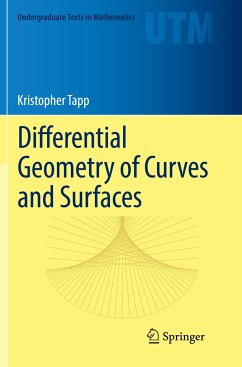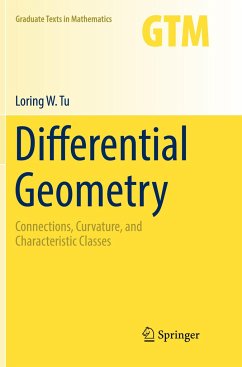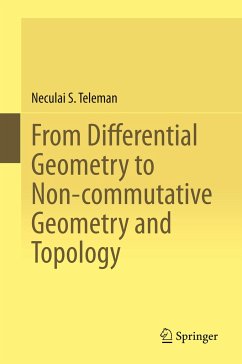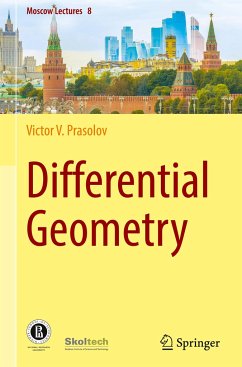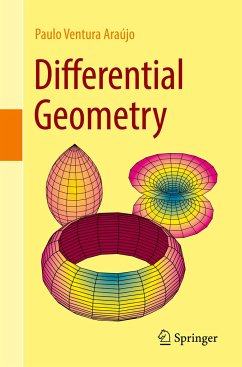
Differential Geometry of Curves and Surfaces
Versandkostenfrei!
Versandfertig in 6-10 Tagen
42,99 €
inkl. MwSt.
Weitere Ausgaben:

PAYBACK Punkte
21 °P sammeln!
This is a textbook on differential geometry well-suited to a variety of courses on this topic. For readers seeking an elementary text, the prerequisites are minimal and include plenty of examples and intermediate steps within proofs, while providing an invitation to more excursive applications and advanced topics. For readers bound for graduate school in math or physics, this is a clear, concise, rigorous development of the topic including the deep global theorems. For the benefit of all readers, the author employs various techniques to render the difficult abstract ideas herein more understan...
This is a textbook on differential geometry well-suited to a variety of courses on this topic. For readers seeking an elementary text, the prerequisites are minimal and include plenty of examples and intermediate steps within proofs, while providing an invitation to more excursive applications and advanced topics. For readers bound for graduate school in math or physics, this is a clear, concise, rigorous development of the topic including the deep global theorems. For the benefit of all readers, the author employs various techniques to render the difficult abstract ideas herein more understandable and engaging.
Over 300 color illustrations bring the mathematics to life, instantly clarifying concepts in ways that grayscale could not. Green-boxed definitions and purple-boxed theorems help to visually organize the mathematical content. Color is even used within the text to highlight logical relationships.
Applications abound! The study of conformal and equiareal functions is grounded in its application to cartography. Evolutes, involutes and cycloids are introduced through Christiaan Huygens' fascinating story: in attempting to solve the famous longitude problem with a mathematically-improved pendulum clock, he invented mathematics that would later be applied to optics and gears. Clairaut's Theorem is presented as a conservation law for angular momentum. Green's Theorem makes possible a drafting tool called a planimeter. Foucault's Pendulum helps one visualize a parallel vector field along a latitude of the earth. Even better, a south-pointing chariot helps one visualize a parallel vector field along any curve in any surface.
In truth, the most profound application of differential geometry is to modern physics, which is beyond the scope of this book. The GPS in any car wouldn't work without general relativity, formalized through the language of differential geometry. Throughout this book,applications, metaphors and visualizations are tools that motivate and clarify the rigorous mathematical content, but never replace it.
Over 300 color illustrations bring the mathematics to life, instantly clarifying concepts in ways that grayscale could not. Green-boxed definitions and purple-boxed theorems help to visually organize the mathematical content. Color is even used within the text to highlight logical relationships.
Applications abound! The study of conformal and equiareal functions is grounded in its application to cartography. Evolutes, involutes and cycloids are introduced through Christiaan Huygens' fascinating story: in attempting to solve the famous longitude problem with a mathematically-improved pendulum clock, he invented mathematics that would later be applied to optics and gears. Clairaut's Theorem is presented as a conservation law for angular momentum. Green's Theorem makes possible a drafting tool called a planimeter. Foucault's Pendulum helps one visualize a parallel vector field along a latitude of the earth. Even better, a south-pointing chariot helps one visualize a parallel vector field along any curve in any surface.
In truth, the most profound application of differential geometry is to modern physics, which is beyond the scope of this book. The GPS in any car wouldn't work without general relativity, formalized through the language of differential geometry. Throughout this book,applications, metaphors and visualizations are tools that motivate and clarify the rigorous mathematical content, but never replace it.



